Search Results
Showing results 41 to 60 of 72

Chemistry is Colorful
Source Institutions
In this activity, learners explore materials through paper chromatography.

Silver Crystals
Source Institutions
This is written as a static display, but can easily become a hands-on experiment for learners.
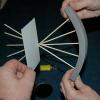
It's all Done with Mirrors
Source Institutions
This fun and simple hands-on astronomy activity illustrates the path of light as it reflects off of mirrors and how this is used in telescopes.

Freezing Lakes
Source Institutions
In some parts of the world, lakes freeze during winter. In this activity learners will explore water’s unique properties of freezing and melting, and how these relate to density and temperature.

Detect Solar Storms
Source Institutions
In this activity, learners build their own magnetometer using an empty soda bottle, magnets, laser pointer, and household objects.

Crunch and Munch Lab
Source Institutions
In this activity, learners use three types of cheesy snacks--cheese balls, cheese puffs, and Cheetos--to learn about polymers.

Milk Makes Me Sick: Exploration of Lactose Intolerance
Source Institutions
Why does milk make some people sick? In this activity learners explore this question and explore the chemistry of milk, and our bodies!
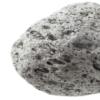
A Crayon Rock Cycle - Igneous
Source Institutions
This is part 3 of the three-part "Crayon Rock Cycle" activity. Before starting this section, learners must have completed part 1: sedimentary rock and part 2: metamorphic rocks.
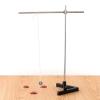
Strange Attractor: Observe Chaotic Motion
Source Institutions
In this activity, learners can observe chaotic motion. A magnet tied to a piece of string makes a pendulum, which swings over three sets of fixed magnets.

Cook with a Solar Oven
Source Institutions
In this activity, learners make their own solar oven to bake s'mores and learn about how solar energy is absorbed on Earth.

What Does Spit Do?
Source Institutions
Some animals can swallow food whole, but humans have to chew. In this activity, learners will investigate what saliva does chemically to food before we even swallow.
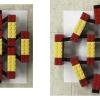
Exploring the Nanoworld with LEGO Bricks: Structure-Property Relationships at the Nanoscale
Source Institutions
In this activity (pages 32-41), learners learn how the atomic and molecular arrangement of matter are related to physical properties.

Shape Up!
Source Institutions
In this activity (pages 8-9), learners investigate the properties of smart materials, which are materials that respond to things that happen around them.

What's in Your Blood?
Source Institutions
Doctors often send a sample of blood to a lab, to make sure their patients are healthy.
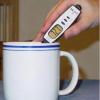
Taking Its Temperature
Source Institutions
In this activity (pages 5-7), learners investigate the properties of smart materials, which are materials that respond to things that happen around them.
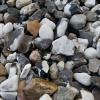
What's the Matter
Source Institutions
In this activity, learners identify different classes of matter based on physical properties.
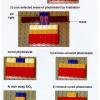
Exploring the Nanoworld with LEGO Bricks: Structures and Their Construction at the Nanoscale
Source Institutions
In this activity (pages 42-49), learners discover the methods and challenges of building nanoscale structures with macroscale equipment.

Lotus Leaf Effect
Source Institutions
This is a demonstration about how nature inspires nanotechnology. It is easily adapted into a hands-on activity for an individual or groups.

How Do We Find Planets Around Other Stars?
Source Institutions
This fun and simple hands-on astronomy activity describes techniques scientists use to find planets orbiting other stars.
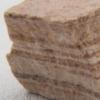
A Crayon Rock Cycle- Sedimentary
Source Institutions
This is part 1 of the three-part "Crayon Rock Cycle" activity. In this activity, learners explore how sedimentary rocks form.
